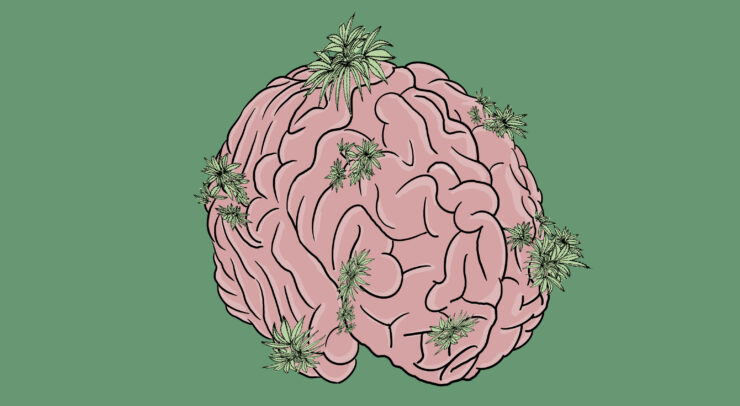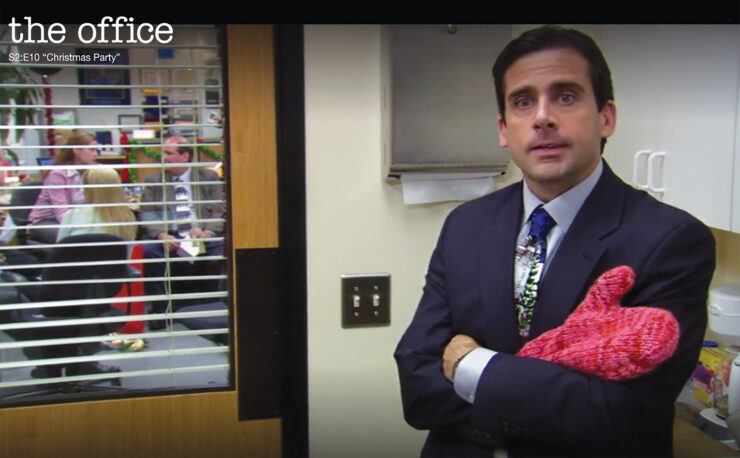Why mental health representation in television matters
*This article may contain spoilers*
We all know that representation in television matters, and there have been a lot of conversations about cultural and racial diversity in both TV and film. But what about representing an invisible minority? When it comes to representation, mental health may not be the first thing you think of, but luckily, the creators of these shows have.
BoJack Horseman
You might not relate to his flashy Hollywoo lifestyle, or the fact that he’s a horse-man, but if you’ve ever been depressed, then you’ll recognize yourself in some of this washed up actor’s antics. Don’t let the fun animation and cheesy jokes fool you, this is no silly cartoon. Unlike most animated shows, BoJack Horseman sticks to a plot that outdoes itself every season. While his depression was established early on, the most jarring—and exceptional—portrayal of it was in season four’s episode, “Stupid Piece of Shit.” The episode immediately lets you in on BoJack’s thoughts as he’s waking up, a private world the audience could only have guessed at before. The shock factor here is that his self-loathing monologue is entirely too relatable.
“You’re a real stupid piece of shit,” it starts. “But I know I’m a piece of shit, that at least makes me feel better than all the other pieces of shit out there who don’t know they’re pieces of shit. Or is it worse? Breakfast.” All this before the opening credits.
You constantly hear that other people are going through the same things as you, but that’s usually just in the form of a statistic. It’s a welcome change to see an honest depiction of what being depressed actually feels like, especially when it’s coming from the horse’s mouth.
The best part is that it wasn’t intentional. In an interview with the Huffington Post, the show’s creator, Raphael Bob-Waksberg, shared that it was never his intention to create a show about depression, explaining that “BoJack Horseman is not trying to capture this thing (depression) as much as it is trying to capture this character and what he is.”
Living with depression is hard, but it doesn’t define you. This show recognizes that people with mental illness are more than that, which is made clear with their well thought out, complex characters, and that’s refreshing.
Love
Love is a show about addiction, in the best possible way. It’s not corny, it doesn’t use mental illness as a plot device or metaphor—it’s simply an honest portrayal of the life of an addict.
It follows the main character, Mickey, as she grapples with being a sex addict, an alcoholic, and a junkie. The show follows her interactions with her friends and roommate, and allows her to be a well-rounded character who recognizes her flaws. Like BoJack, Mickey recognizes that she has a problem, and she takes important steps to recover, like attending Alcoholics Anonymous and motivating herself to stay sober.
Mickey may be an addict, but she’s functional, has a job, and maintains her relationships, albeit not all well. Love gives audiences a real picture of what addiction looks like to some people, without factoring in unnecessary drama.
Jessica Jones
One of Marvel’s better shows, Jessica Jones follows the titular character in her struggle to recover from a history of trauma, from witnessing the death of her family, to surviving rape and abuse by season one’s villain, Kilgrave.
Jones is more of an anti-hero than a superhero, and despite her super strength, being strong isn’t always easy. This is especially true whenever she is faced with her abuser. The show does a phenomenal job of depicting life as a trauma survivor, with Jones struggling with feelings of guilt, dealing with vivid flashbacks triggered by certain words or instances, and self-medicating through alcohol and sex.
It also does a good job of showing how the people close to her handle or mishandle her trauma. One example is her adoptive sister, Trish, who means well by trying to get Jessica to face her fears, but often just worsens or triggers her illness.
Like BoJack and Mickey, Jones is a four-dimensional character, despite being straight out of a comic book, and her struggle with mental illness is not a just a gimmick.
BoJack Horseman, Love, and Jessica Jones, are streaming on Netflix.





